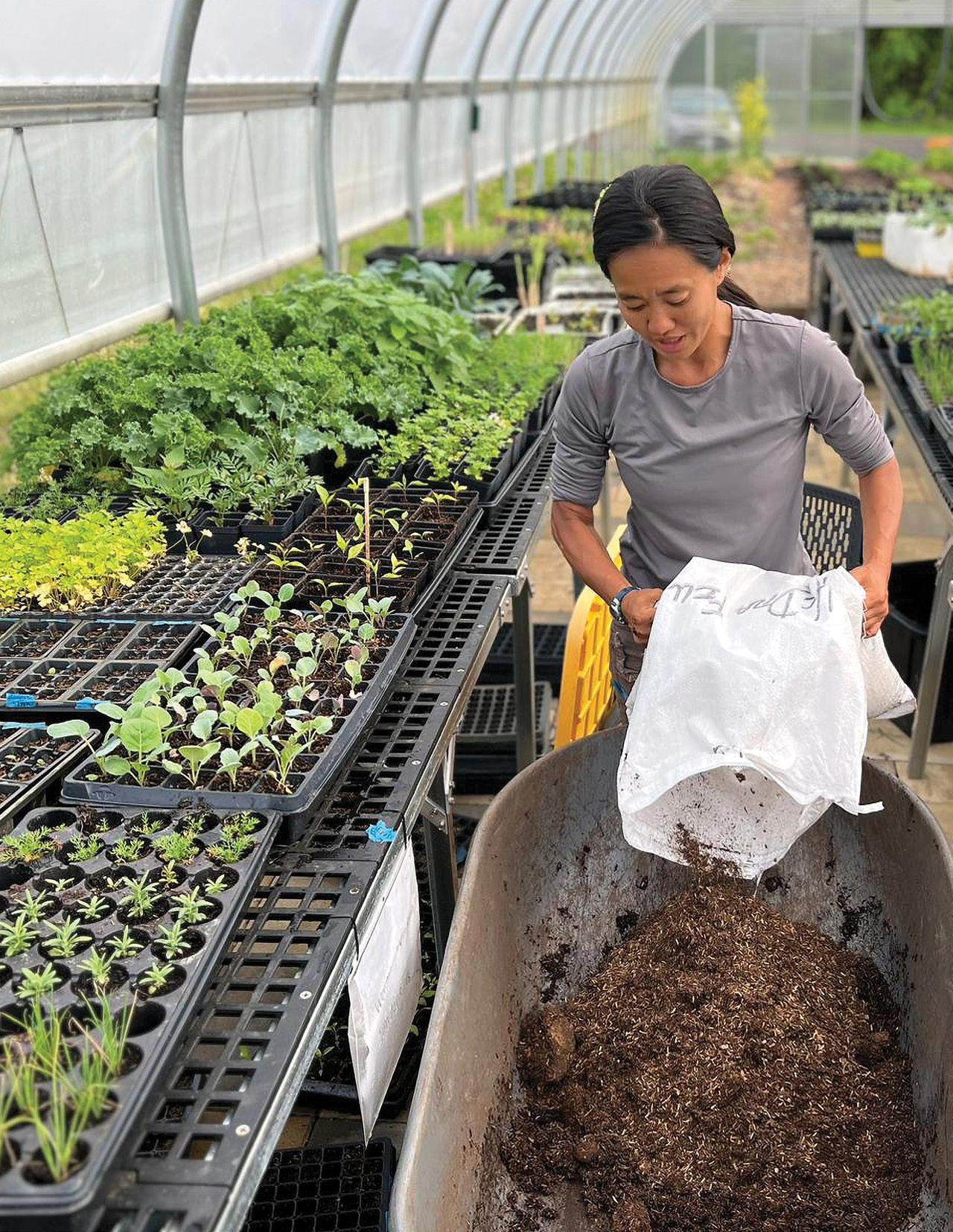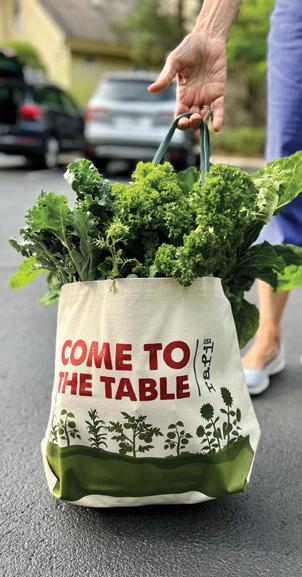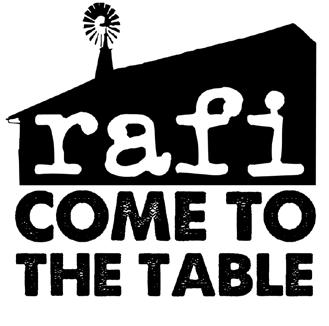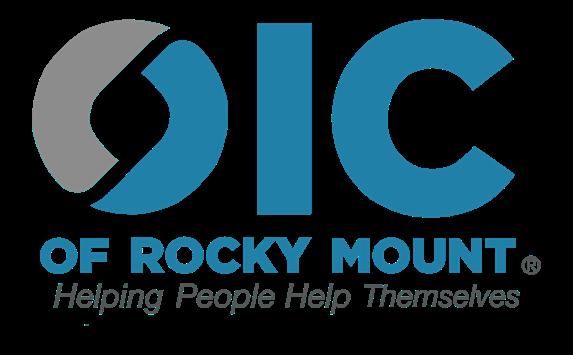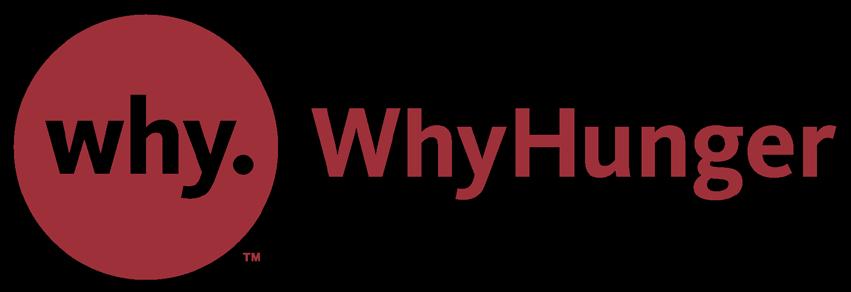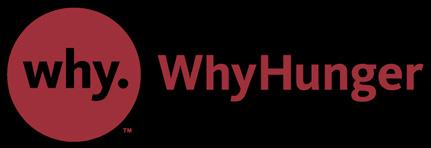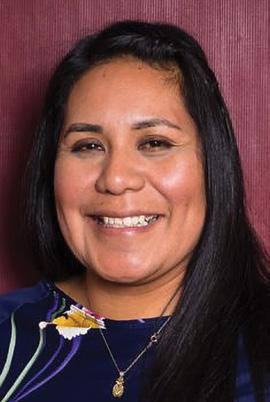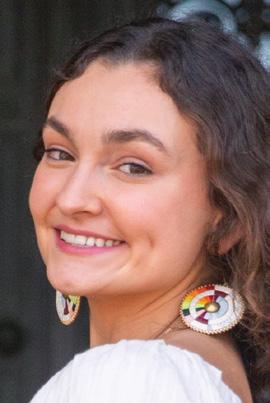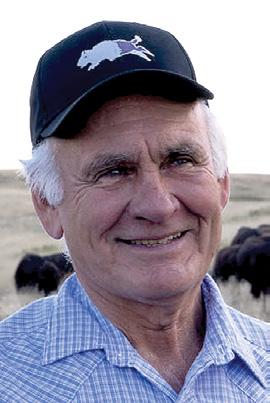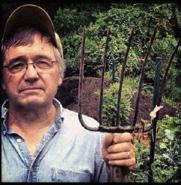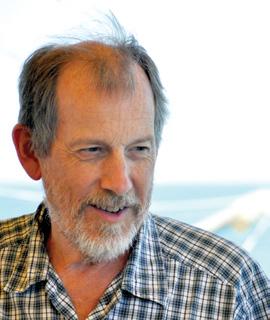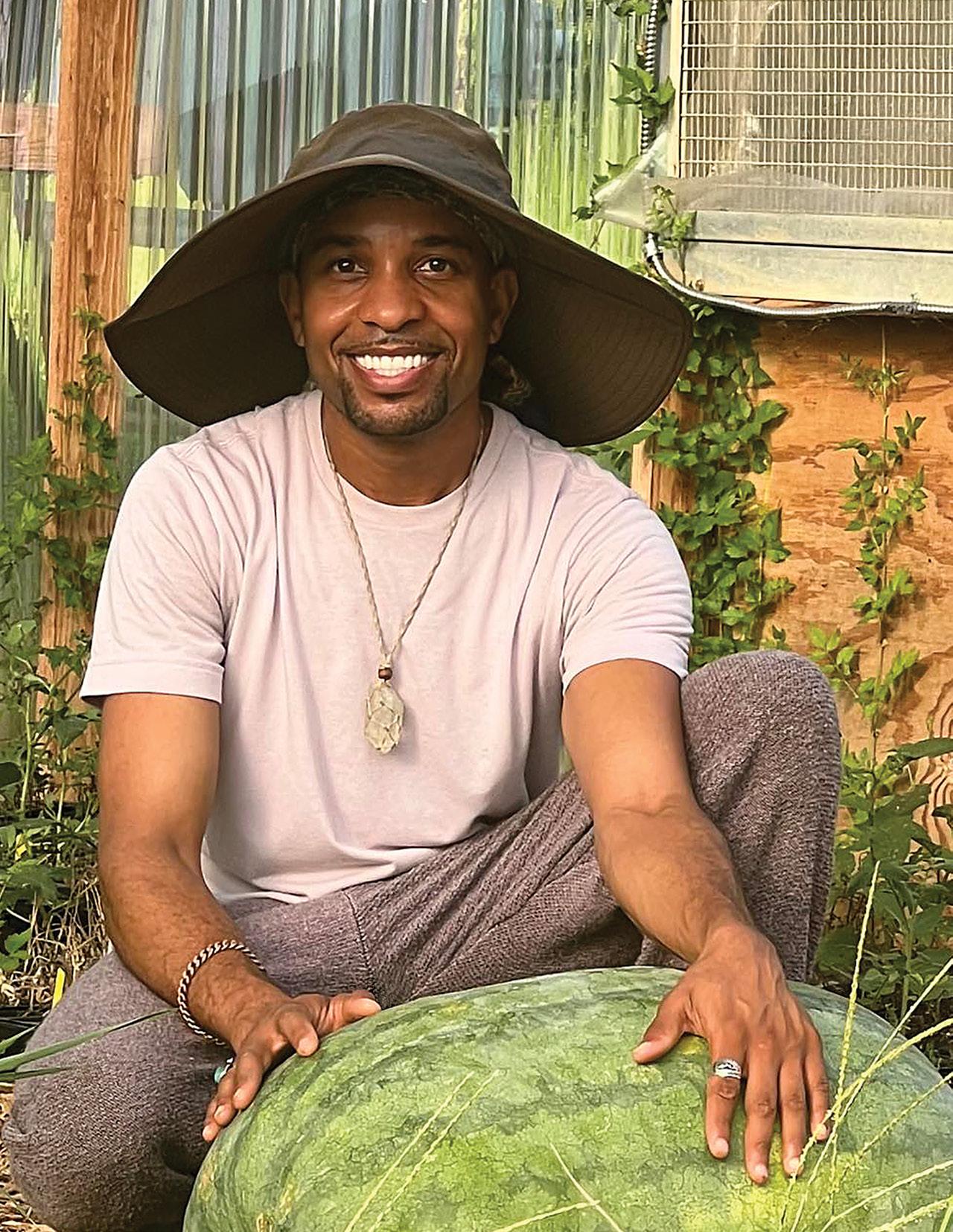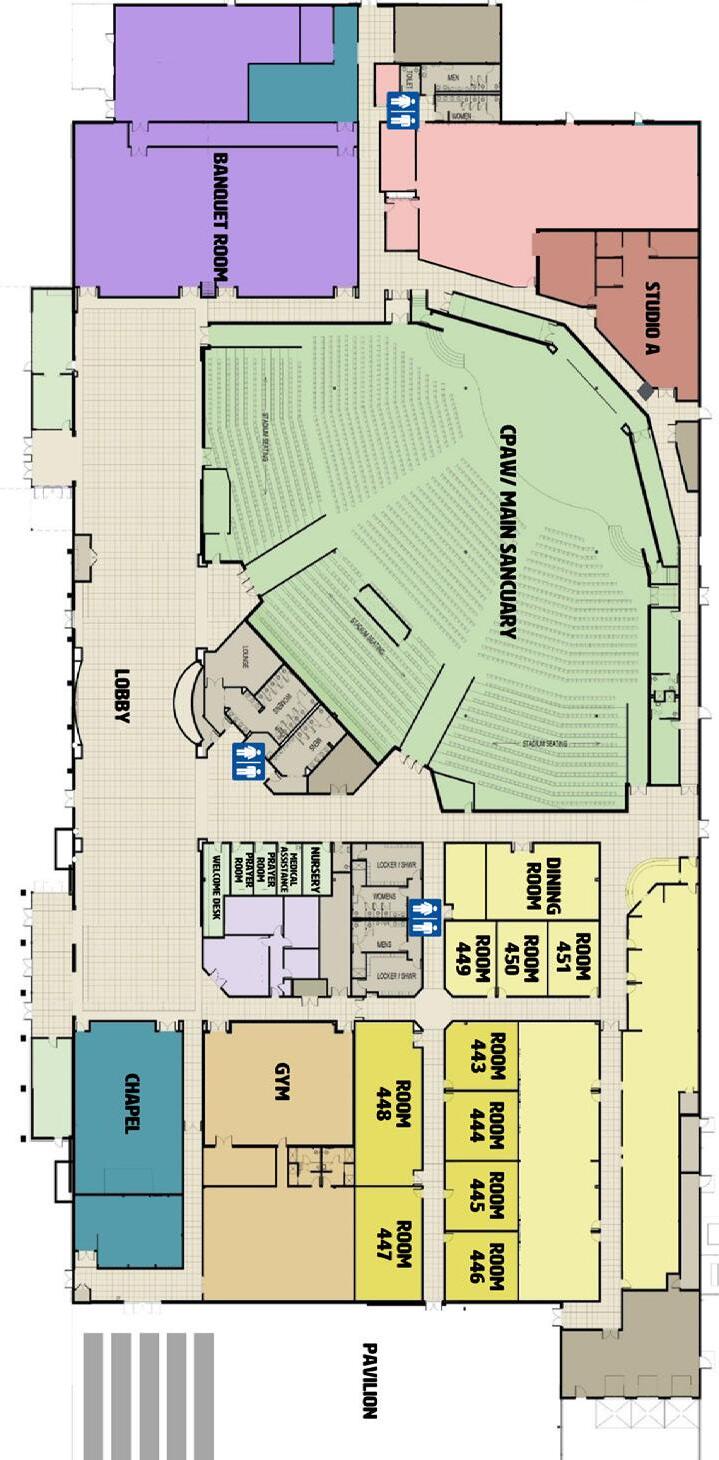From The Duke Endowment
Nearly two decades ago, leaders from the Rural Church program area of The Duke Endowment, the North Carolina Council of Churches, and the Rural Advancement Foundation International (RAFI) came together around a dream. That dream was to create a space in which farmers, faith communities, and food-related nonprofits could encounter and hear one another, and discover ways to work together to develop solutions to the persistent and complex issues affecting producers and low-income consumers.
In 2007, the first Come to the Table Conference was held and it has yielded much fruit. Today we gather again to build on that good work, meet new colleagues, learn from one another, celebrate good work, and plan together how best to address the challenges of the food system.
The Duke Endowment is pleased to support and participate in this vital gathering. We have seen inspiring and innovative collaborations and projects arise from it and eagerly look forward to what will be borne out of our time in Rocky Mount. We continue to believe that, when people from multiple backgrounds come together with open minds and creative energy to identify common needs and goals, amazing results emerge.
We trust that those who join us at this Come to the Table conference have arrived with just these gifts and a shared purpose, and we look forward to seeing what arises from the fertile soil we are tilling today!
Robb Webb Director, Rural Church, The Duke Endowment
Kristen Richardson-Frick Associate Director, Rural Church, The Duke Endowment
RAFI and Come to the Table
Since our founding in 1990, RAFI has recognized that our food system is deeply inequitable, and that rural communities — their land, animals, and people — are exploited to benefit corporate power structures. Working across the agricultural sector and collaboratively through coalitions, we combine on-the-ground practical services and policy advocacy to ensure farmers have access to the tools they need to make the right choices for their farms and families as well as for their communities and the environment.
RAFI’s mission is to challenge the root causes of unjust food systems, supporting and advocating for economically, racially, and ecologically just farm communities.
We envision a thriving and equitable food system where farming communities have dignity and agency; where they are supported by just policies; and where corporations and institutions are accountable to the communities they impact.
The Come to the Table program seeks to empower faith communities to participate in the creation of a just food system through collaboration, capacity building, and advocacy. Since 2007, Come to the Table has convened faith leaders and food justice advocates locally, regionally, and throughout the state to learn, network, and grow together. Come to the Table offers partnership opportunities with farmers, education and training for faith leaders, and small grants to rural United Methodist Churches.
We are grateful for the contributions and support of our partners, conference speakers, volunteers, and everyone who has contributed time and energy towards this conference.
As a work of collaboration, the Come to the Table program unites the efforts and energies of diverse and committed people.
Conference Planning Team
Edna Rodriguez
Justine Post
David Allen
Jarred White
Taylor Sligh
Angel Woodrum
Ren Martin
Mariah Perrigo Cody
Susan Alan
Steering Committee
Antoine Hall
Allanah Hines
Crystal Imes
Tameka Joyner
James Mercer
Tobias Pinckney
Liz Styron
Established in 1924 by industrialist and philanthropist James B. Duke, The Duke Endowment is a private foundation that strengthens communities in North Carolina and South Carolina by nurturing children, promoting health, educating minds and enriching spirits.
Since its founding, it has distributed more than $3 billion in grants. In addition to grantmaking work in four program areas (child care, health care, higher education and rural churches), the Endowment shares its knowledge by publishing resources for grantees and other service organizations, including information about what we’re learning from our work in various publications, reports and evaluations. The Endowment shares a name with Duke University and Duke Energy, but all are separate organizations.
Center for Faith-Based and Neighborhood Partnerships
U.S. DEPARTMENT OF AGRICULTURE
Progress requires innovative, community-based solutions. That’s why the USDA’s Center for Faith-Based and Neighborhood Partnerships reaches out and connects government with non-profit organizations — both secular and faithbased — to help people in need.
The North Carolina Council of Churches is a statewide ecumenical organization promoting Christian unity and working towards a more just society. They have assisted RAFI’s Come to the Table program in conference planning.
The Impact Center at Word Tabernacle is a venue that serves the community by providing spaces to connect, educate, celebrate, and collaborate. RAFI’s Come to the Table team is grateful for their gracious hospitality in hosting us for the conference!
The Prime Smokehouse’s mission is to create the best possible dining experience for guests by serving top-quality, delicious food and beverages and incredible entertainment in a clean, hospitable, homey environment. Prime Smokehouse serves as the primary caterer for the Come to the Table Conference.
SUNDAY, SEPTEMBER 29, 2024
7:00 p.m.–9:00 p.m. Mill at the Mills* The Power House
MONDAY, SEPTEMBER 30, 2024
8:00 a.m. Conference Registration Opens
9:00 a.m.–10:10 a.m. Welcome and Keynote Speaker: Dr. Gail Myers CPAW
10:30 a.m.–11:30 a.m. Farmer and Farm Advocate Panel CPAW
11:30 a.m.–1:00 p.m. Lunch and Networking Banquet Room/Lobby
Visit our exhibitors!
1:00 p.m.–2:15 p.m. Workshop Session #1
See pages 12-13 for workshop locations
2:30 p.m.–3:45 p.m. Workshop Session #2
See pages 14-15 for workshop locations
6:30 p.m.–8:30 p.m. Taste and Hear A Dinner & Storytelling Hour* The Prime Smokehouse
TUESDAY, OCTOBER 1, 2024
8:00 a.m. Conference Registration Opens
8:50 a.m.–10:00 a.m. Welcome and Keynote Speaker: A-Dae Romero-Briones CPAW
10:15 a.m.–11:15 a.m. Food, Land & Sacred Story Panels
See page 16 for panel locations
11:30 a.m.–12:45 p.m. Workshop Session #3
See pages 16-17 for workshop locations
12:45 p.m.–1:30 p.m. Grab-N-Go Lunch + The Farmers Market Pavilion
* Registration for these events was required, please check the back of your nametag.
Lunch Power Hour Sessions on September 30
These optional lunch sessions are available for attendees to network around different topics
Susan Schempf
The Wallace Center Farm to Food Assistance Partnerships
Classroom 448
Aaron Johnson and Rachel Brunner
RAFI
Climate Smart Agriculture Classroom 446
Von Barnes
Kentuckiana Backyard Farms
Strengthening Market Access Classroom 444
Jason Blanton Bread for the World Child Tax Credit Classroom 443
Suzanne Parker Miller Pastors for NC Children
School Meals for all NC Classroom 447
MONDAY, SEPTEMBER 30
Dr. Gail Myers
Co-founder
Farms to Grow, Inc.
The Power in Telling Our Stories: Resilience and Resistance
Dr. Gail Myers is a cultural anthropologist, creator of the film project, Rhythms of the Land, and Co-founder of Farms to Grow, Inc. In 1997, while pursuing her doctorate at The Ohio State University, she conducted her first interviews with African American farmers.
Her passion for Black farmers developed as a result of hearing stories of their loss and struggles without recognition for their contributions. For the last 23 years she has been interviewing, researching, writing about, and filming the stories of African American farmers. Myers is considered an expert in the anthropology of African American farming.
TUESDAY, OCTOBER 1
A-dae Romero-Briones
Vice President, Policy & Research
First Nations Development Institute
Our Oldest Teachers
A-dae Romero-Briones (Cochiti/Kiowa) has worked at the intersection of Indigenous foodways and food sovereignty her whole career, presently as the Director of Programs for First Nations Development Institute.
Romero-Briones has worked for the University of Arkansas School of Law Indigenous Food and Agricultural Initiative and has written extensively about food safety and the protection of traditional tribal foods.
Romero-Briones has been named a U.S. Fulbright Scholar and White House Champion of Change in Agriculture, and holds a Law Doctorate LLM Degree.
TUESDAY, OCTOBER 1
Elsie M. DuBray
Tribal Food Systems Fellow, First Nations Development Institute
(Oohenunpa Lakxota, Nueta, Hidatsa)
Elsie is an enrolled member of the Cheyenne River Sioux Tribe. She is Oohenunpa Lakota and also Mandan and Hidatsa, hailing from a buffalo ranch on the Cheyenne River Reservation in South Dakota. She is currently finishing her master’s degree in Community Health and Prevention Research at Stanford University, where she previously earned a B.S. in Human Biology with a focus on the Holistic Health and Wellbeing of Indigenous Communities.
Elsie’s contributions in the film Gather, a documentary showcasing her family and other Native food sovereignty stories, have led to the creation of Stanford University’s first Tribal Food Sovereignty course in collaboration with the First Nations Development Institute.
Elsie is deeply committed to Indigenous public health and wellness, with a particular focus on Native food sovereignty and buffalo restoration for Lakota peoples. Her work often challenges mainstream definitions of “food sovereignty,” offering a more nuanced perspective rooted in the intergenerational life experiences of her family and community.
Fred DuBray
Buffalo Rancher, South Dakota
Fred graduated high school in May 1968 from Cheyenne Eagle Butte High School in South Dakota. He enlisted in Marine Corps in June 1968. Fred served 3 years in Marines with one in Vietnam. After his military service, he competed in rodeo and worked various construction and ranching jobs across the country until 1986.
In 1990 he graduated from Black Hills State University with a BS in Speech Communications and Social Science. After college, Fred started a ranching operation on the Cheyenne River Reservation and also went to work for the Cheyenne River Sioux Tribe as a Tribal planner. In 1992, he was hired by the Tribe as Executive Director of Pte Hca Ka, a Tribally chartered corporation created to restore buffalo back to the Tribe. Also in 1992, Fred founded and was the first President of the InterTribal Bison Cooperative, which was comprised of Tribes across the country who had similar relationship with buffalo and were interested in restoring buffalo back to their land. From 2002 to 2006 he was ITBC’s Executive Director.
Fred is a recognized leader in the modern buffalo restoration movement. He has most recently been featured in the documentary Gather (Netflix) and in a NY Times article regarding his fight for buffalo facing the cattle disease, mycoplasma bovis. Fred continues to advocate for buffalo at every opportunity.
Farmworker’s Fight to Food and Water
Leticia Zavala and Maria Mejia
Welcome, Neighbor: Trauma-Informed Approaches to Food Distribution
Amy Grimes Hutchings
Difficulties and Rewards of Donating Land
Rev. Callie Walker
Birdbrain: Pathways to Personal Storytelling
Lillian Wooten White
Collaborative Growth: The Impact of NC Food Hubs
Isa Bailey, JT Crawford, Laney Baker, and Sam Springs
Food Charity, Food Justice, Food Rights and Food Sovereignty — What is it all About? (Part 1) Chelsea Marshall and Alison Cohen
Fostering Intergenerational Exchange and Systems Change through Mentorship
Susan Lightfoot Schempf and Andrew Carberry
From Tragedy to Hope: Healing and Empowering through Agriculture
Ivette Ruiz
Rhythms of the Land Documentary Screening and Q&A (Part 1)
Gail Myers
Shaping Stories that Challenge Corporate Power
for
The Soul Speaks in Story (Part 1) Mark Yaconelli
“Nothing About Us, Without Us” Grassroots Leadership in Food Ministry
Beyond Who Grows Your Food: Recipes for Revolution
Leonina Arismendi
Farmville Food Hub: Growing Resilience in Rural Food Security
Morgan Daughety, Zachary Hackney, and Jackie Sugg
Fertilizing your Gifts Garden for Collaborative Partnerships
Dave Walker, Andrew Hudgens, Christopher West, Heather Kilbourne, and Darren Crotts
Food Charity, Food Justice, Food Rights and Food Sovereignty — What is it all About? (Part 2)
Chelsea Marshall and Alison Cohen
How About That Farm Bill?
Margaret Krome-Lukens
Rhythms of the Land Documentary Screening and Q&A (Part 2)
Gail Myers
Storytelling for Food Justice: How Voicing our History Can Affect our Futures
Ren Martin
Uniting in Original Teachings Across Shared Values and Principles
Helga Garcia-Garza
That You May Live Long on the Fertile Land:
Faith, Farmers, and Transformed Local Food Systems
Keith Sexton and Jacob Dye
The Soul Speaks in Story (Part 2)
Mark Yaconnelli
WORKSHOP SESSION #3 • TUESDAY, OCTOBER 1, 11:30 A.M.–12:45 P.M.
Agricultural Easements: Enhancing the Spiritual Connection to the Land Through Preservation
Carrie Martin, Annette Hiatt, and Anita Kennedy
Black People are Dying: A Look at the Louisville Foodscape
Taylor Ryan
CSA as a Global Movement — Stories from Elsewhere
Empowering
Weaver
Twesten and Allanah Hines
Jewish Agricultural Wisdom and Ethics
Shani Mink
Recollections: Black Farmers and the Struggle for Land
Edward Lewis
Rural and Urban BIPOC Women Engage with Climate Smart Agriculture: Exploring the Role of Networks
Nicole Gwishiri and Hannah Dankbar
Should it Stay or Should we Grow? How to Assess your Faith Community’s Land
Kavita Koppa
Sustaining Community Well-Being with Earth-Honoring Faith Nia
Therapeutic Horticulture and Memory Gardens
Arlecia Simmons
Leading with the Story, Food and Environmental Justice
MONDAY, SEPTEMBER 30 • 1:00 P.M.–2:15 P.M.
Farmworker’s Fight to Food and Water
Leticia Zavala and Maria Mejia
Leticia Zavala and Maria Mejia will be moderating a panel of farmworkers. One farmworker leader will speak about what forced meal plans are and how supervisors limit the use of kitchen facilities to workers in order to sell them food and drinks. Another farmworker leader will speak about the “Ni Una Muerte Más” campaign and how the lack of access to drinking water and shade during heat waves has led to workers dying in the fields.
Welcome, Neighbor: Trauma-Informed Approaches to Food Distribution
Amy Grimes Hutchings
In this session, we’ll explore how each of the six trauma-informed principles developed by the Substance Abuse and Mental Health Services Administration (SAMHSA) may be applied in charitable food distribution work. This information aims to help us understand one another better, build trust and community, and make our work more joyous and impactful.
Difficulties and Rewards of Donating Land
Rev. Callie Walker
Join Rev. Callie Walker as she shares her own journey of transitioning her familyowned land in Virginia to a Community Land Trust. From surveys to zoning changes to deed transfers and everything in between, Callie will highlight everything it took to successfully donate and protect their land.
Birdbrain: Pathways to Personal Storytelling
Lillian Wooten White
Birdbrain, an original play co-created by Lillian White & Ricardo Delgado, tells the story of a young woman who finds herself back on her family’s farm. The session will feature performance excerpts from Birdbrain, along with narrative exercises, prompts, and insights to support creative inquiry. In this session, emphasis will be placed on intuition, association, imagination, and embracing the right side of the brain.
Collaborative Growth: The Impact of NC Food Hubs
Isa Bailey, JT Crawford, Laney Baker, and Sam Springs
This session will showcase how two North Carolina food hubs successfully aggregate and distribute local food to their communities. Learn more about their unique strategies, the challenges they face, and the impact they’ve made on local economies and food security.
Food Charity, Food Justice, Food Rights and Food Sovereignty — What is it all About? (Part 1)
Chelsea
Marshall and Alison Cohen
In this interactive workshop, we will explore together how different ways of describing the problems we’re trying to solve affect the work we do to make change in the world. We will examine some of the contradictions in our current approaches and identify the central questions we should be asking ourselves and our communities as we design new strategies and narratives that will support food as a human right.
Classroom 443
Classroom 444
Banquet Room
Classroom 448
Chapel
Gym
Fostering Intergenerational Exchange and Systems Change through Mentorship
Susan Lightfoot Schempf and Andrew Carberry
In this workshop, we’ll hear stories from several mentors, mentees, and program staff about the power of mentorship and how it has facilitated and accelerated their leadership and food systems transformation work.
From Tragedy to Hope: Healing and Empowering through Agriculture
Ivette Ruiz
This workshop will explore the transformative power of healing through agriculture. Dr. Ruiz, a minister, farmer, and founder of Healing By Growing Farms, will share her personal journey of turning tragedy into hope and how it led to the creation of Healing By Growing Farms as a beacon of support and purpose for brain injury and trauma survivors at no cost to them.
Rhythms of the Land Documentary Screening and Q&A (Part !)
Gail Myers
Rhythms of the Land is a valentine to generations of Black farmers in the United States from the enslavement period to the present, whose intense love of the land and dedication to community enabled them to survive against overwhelming odds.
Shaping Stories that Challenge Corporate Power
Aaron Johnson
Classroom 445
Classroom 447
Today’s food system is dominated by a handful of massive corporations that use their control over the food supply to extract profits from the public while harming farmers, workers, communities, and the climate. If we want a food system that is designed to feed us without harming us, we will need to reimagine core cultural narratives that are keeping us from challenging the feudal lords of our time. Staff Dining
Story-Sharing for Healing Our Divides
Carol Wilson
This workshop will explore the challenges bridging our divides. This will include the exploration of biases and cultural stories and current research on the most effective ways to listen and speak so that openness and connection can grow.
The Soul Speaks in Story (Part 1)
Mark Yaconelli
Using contemplative exercises, narrative practices, theological reflection, and realworld examples, participants will: Understand how stories function in our personal and communal lives, and learn how to use story practices in groups to deepen (and even transform) relationships within families and communities of faith.
Classroom 446
The Power House
MONDAY, SEPTEMBER 30 • 2:30 P.M.–3:45 P.M.
“Nothing About Us, Without Us” Grassroots Leadership in Food Ministry
Devin Pettiford
In this workshop, we will define grassroots leadership, discuss why this type of leadership is impactful in food ministry, give some examples of how grassroots leadership has been effective in food work, discuss barriers to shifting to a grassroots leadership style, and give tools and suggestions about how this can look in ministry settings. Classroom 446
Beyond who Grows your Food: Recipes for Revolution
Leonina Arismendi
Drawing from their experiences as an environmental justice activist and organizer, Reverend Arismendi will delve into the lives of undocumented farmworkers, shedding light on their stories, challenges, and resilience.
Farmville Food Hub: Growing Resilience in Rural Food Security
Morgan Daughety and Zachary Hackney
The session will cover three phases of the community asset process: Identifying community leaders, creating listening groups, and transitioning into an action based group that is guided by the voice of the community. The story of this process will cover unexpected successes, unforeseen struggles, and tools that have helped during the process.
Fertilizing Your Gifts Garden for Collaborative Partnerships
Andrew Hudgens, Christopher West, Heather Kilbourne, and Darren Crotts
Drawing from extensive experience with dozens of faith-based organizations, this session will offer practical resources and valuable insights that will reshape your approach to your work and the tools you use to transform your community. Participants will have the opportunity to put these tools into practice during the session by applying them to their own context.
Food Charity, Food Justice, Food Rights and Food Sovereignty — What is it all About? (Part 2)
Chelsea Marshall and Alison Cohen
Classroom 444
Throughout the session, we will examine some of the contradictions in our current approaches and identify the central questions we should be asking ourselves and our communities as we design new strategies and narratives that will support food as a human right. We will trial the Food Systems Change Continuum as a tool for understanding how the way we define the problems in the food system shape our strategies for change and the results we can expect to see. Classroom
How About That Farm Bill?
Margaret Krome-Lukens and Rachel Brunner
What’s going on with the Farm Bill? Why does it matter to me? How does that whole process work, anyway? How can I make a difference? We’ll explore these questions and more at this session with RAFI’s policy staff.
Staff Dining
Banquet Room
Rhythms of the Land Documentary Screening and Q&A (Part 2)
Gail Myers
After viewing Rhythms of the Land, hear from director Gail Myers on the creative process of the documentary and her work with farmers of color, before time for a Q&A!
Storytelling for Food Justice: How Voicing our History Can Affect our Futures
Ren Martin
Have you ever wondered how your experience can translate into meaningful action? Join Ren Martin for a workshop on the connections between community, storytelling, and food justice.
Uniting in Original Teachings Across Shared Values and Principles
Helga Garza
La Cosecha/Agri-Cultura Cooperative Network (ACN) has long engaged in faithbased work that includes historical generational concepts rooted in the Native, Indigenous original teachings of how we take care of the Earth and each other. Join this session to learn from the faith-based collaborations that La Cosecha/ACN undertook in the midst of the COVID pandemic.
That You May Live Long on the Fertile Land: Faith, Farmers, and Transformed Local Food Systems
Keith Sexton and Jacob Dye
United Methodist pastors Keith Sexton and Jacob Dye explore the impact communities of faith can have on their local food systems and the health of the land.
The Soul Speaks in Story (Part 2)
Mark Yaconelli
Learn how to use story practices in groups to deepen (and even transform) relationships within families and communities of faith. Explore narrative practices that promote healing, spiritual growth, social awareness, and community action. Learn how to apply storytelling techniques within worship, staff meetings, church committees, and other informal gatherings.
Taste and Hear: A Dinner & Storytelling Hour | September 30, 6:30 p.m.
Sarah Hardman, Mariel Gardner, Hope Ostane-Baucom, Chris Battle, Mark Yaconelli, Veronica Watson, and Fatimah Salleh
Join us at Prime Smokehouse for a shared meal and a time of impactful storytelling. Hosted by New York Times best-selling author Mark Yaconelli and RAFI, six individuals will each tell their stories of connection to food, land, and the sacred.
CPAW
TUESDAY, OCTOBER 1 • 10:15 A.M.–11:15 A.M.
Advancing Equity in Food Systems
Helga Garza, Kelly Warnock, and Tambra Stevenson
This panel discussion will feature speakers whose work includes improving access to fresh food and advocating for policies that would create better food systems for all. Join Kelly Warnock (Durham County Department of Health), Helga GarciaGarza (Agri-Cultura Network), and Tambra Stevenson (WANDA) for an engaging discussion on how individuals can advance equitable food access in their communities.
Live Recording of the Food and Faith Podcast
Derrick Weston, Ken Daniel, Gary Smith, and Jarred White
Join Derrick Weston, host of the Food and Faith Podcast, for a live taping of the popular podcast with special guests! The trio of guests will touch on the practical, theological, and equitable reasons that faith communities and farmers should work together to build a more just food system.
Toward A Just Access To Land
Callie Walker, Steve Schwartz, and Duron Chavis
Mark Twain once said, “Buy land, they aren’t making it anymore.” While the latter might be true, there is more to accessing land than a transaction. We must think more critically about land access in this country and how faith leaders and congregations can be a part of the solution.
Come hear from Steve Schwartz (Interfaith Sustainable Food Collaborative), Callie Walker (Central Virginia Agrarian Commons), and Duron Chavis (Sankofa Orchard) as they discuss innovative ways that congregations and landowners can provide and protect land for future farming generations.
TUESDAY, OCTOBER 1 • 11:30 A.M.–12:45 P.M.
Agricultural Easements: Enhancing the Spiritual Connection to the Land through Preservation
Carrie Martin, Annette Hiatt, Anita Kennedy
Join representatives from NCDA&CS: Farmland Preservation as well as Black Family Land Trust and the Land Loss Prevention Project to discuss barriers and challenges as well as tools and strategies to preserve our farmland and keep farmers operational. We will also discuss the role that communities of faith can play within the agricultural community. Gym
Black People are Dying: A Look at the Louisville Foodscape
Taylor Ryan
Join Change Today, Change Tomorrow (CTCT) for an enlightening session exploring the urgent issue of food injustices within Louisville’s communities. Through an engaging presentation, we’ll delve into the stark realities of navigating an active food apartheid, particularly for Black families. Chapel
CPAW
Banquet Room
Chapel
CSA as a Global Movement: Stories From Elsewhere
Carolina Alzate
Community Supported Agriculture (CSA) has as many stories as CSA’s exist in the world. But it is interesting to delve into the philosophical proposal behind this solidarity economy model that has changed not only a lot of farmers’ revenue and welfare enhancement but also has reshaped the relationship between the city and the field. We will take a look at CSA stories and strategies in other countries. Classroom
Empowering Equity: Weaver Street Market Shared Strategies for Success in Retail Markets
Carolyn Twesten and Allanah Hines
Join us for an enlightening and interactive workshop focused on unlocking opportunities in retail markets and promoting nutritional equity in underserved communities! Learn how we break down complex retailer language, making it more accessible for growers to understand and effectively navigate the requirements of grocery stores.
Jewish Agricultural Wisdom and Ethics
Shani Mink
The Jewish tradition offers a 5,000 year old system of living in a regenerative, mutually supportive relationship with the land, our communities, and ourselves. Join Jewish Farmer Network co-founder Shani Mink to explore Jewish agrarian wisdom — and the healing that comes from grounding our work with the land in our own wisdom tradition. Learn what the ancient body of Jewish wisdom can teach us about building regenerative agricultural systems built on integrated food justice principles, visionary crop rotation and a culture of reverence for the land.
Recollections: Black Farmers and the Struggle for Land
Edward Lewis
This workshop presents excerpts of interviews and photographs of Black Farmers, starting in the early 1990s. These audio clips and images are meant to be an effective motivator to start others talking about their own lives and experiences.
Rural and Urban BIPOC Women Engage with Climate Smart Agriculture: Exploring the Role of Networks
Nicole
Gwishiri and Hannah Dankbar
This presentation represents applied research conducted as part of a climate smart cohort training that rural BIPOC identifying women participated in during 2023 in eastern North Carolina. During 2023, 29 BIPOC identifying women joined American Farmland Trust, NC State and the Black Family Land Trust for a “Get Climate Smart Food and Agricultural System’s Resilience Training.”
Should it Stay or Should we Grow?
How to Assess your Faith Community’s Land
Kavita Koppa
This session will be a practical perspective on how to assess your faith community’s land for ways in which it can justly contribute to equitable food systems. Participants will walk through property and learn how to “see” it as a farmer might, helping to determine if its best use is for growing food, hosting markets, or something else entirely.
Sustaining Community Well-Being with Earth-Honoring Faith
Nia Harris
Nia Harris of Healing Us Evergreen will share her personal and communal experiences integrating ecological healing perspectives and southern Black faith traditions. These stories are told with the intention of illuminating strategies for faith communities seeking to establish and/or rejuvenate their community wellness resources through encouraging deeper relationships with the Earth.
Therapeutic Horticulture and Memory Gardens
Arlecia Simmons
In this session you will hear some of the amazing work congregations are doing across the state around therapeutic horticulture and memory gardens.
Leading with the Story, Food and Environmental Justice
Michelle Lewis
Want to tell clear and engaging stories that help you or your organization reach its goals? Leading with the story will help you understand how to use narrative to reach new and existing audiences. Participants should come ready to share their own stories and listen to the stories of others.
For more detailed workshop descriptions and to view speaker bios, please scan the QR code.
Classroom 446
Classroom 445
Banquet Room
RAFI offers many programs that support small- to mid-scale farmers with technical assistance, grants, and trainings, primarily in the Southeast U.S. and U.S. Caribbean islands.
For Faith Communities
• Supporting food ministries and pantries in addressing root causes of hunger.
• Offering trainings for faith leaders on food insecurity, racial equity within the food system, the effects of corporate consolidation, theological responses to food justice, and more.
• Connecting faith communities with local BIPOC farmers and producers.
Contact
Justine Post, justine@rafiusa.org
Jarred White, jarred@rafiusa.org
David Allen, david@rafiusa.org
For Farmers
Farm Advocacy and Financial Counseling
• Financial counseling and legal referrals for farmers in crisis
• Information on agricultural contracts
Contact
Farmer Crisis Hotline, toll-free at 866.586.6746
USDA Program Support
• Technical support for NRCS programs and applications
• Technical support for FSA loan programs and applications
Contact
Jaimie McGirt (NRCS), jaimie@rafiusa.org
Other Agricultural Support
• Support for climate-smart growing practices and certifications
• Information on accessing farmland
• Information on pollinator habitats and seed breeding/production
Contact
Teiara Turner (climate-smart), teiara@rafiusa.org
Kavita Koppa (land access), kavita@rafiusa.org
Kelli Dale (seeds), kelli@rafiusa.org
Farmers of Color Network
• Technical support, networking, and educational opportunities
• Access to media, public policy, training, funding, and leadership opportunities
Contact Bianca Anthony, bianca@rafiusa.org
Action Alerts and Policy Advocacy
To contribute to systemic change in the food system, we take what we learn in the field from our direct work with farmers and advocate for policy change on a federal level.
We encourage all to join our Policy Action Network to boost our advocacy and receive policy updates, action alerts, social media activism guides, and training opportunities.
Stay informed by visiting the RAFI website and signing up for the mailing list at: bit.ly/RAFIpolicy
PROTECT THE FUTURE OF FOOD
Make a Difference Today with Your Gift to RAFI
Your gift isn’t just a donation; it’s a lifeline for farmers and our food system.
“So many organizations get USDA funding to support small farmers and it doesn’t ever benefit us. But RAFI does what it says it’s going to do.”
— A farmer in Georgia who received technical assistance
By donating today, you join the call to stand with farmers. Your support will empower farmers like Julius and Anita to thrive and innovate as they boldly face challenges such as climate change and market shifts. A stronger, more equitable food system is possible. Your generosity fuels resilience and growth in rural communities, nurturing the future of farming in the U.S.
“I believe in RAFI. They are on the ground and are actively listening to those who have little voice or impact at the table. RAFI is often the only and last assistance available to farmers and workers facing unjust obstacles. They are making a difference in rural America.
That’s why I give my time, counsel, and money to RAFI.
— Jerry DeWitt, former RAFI Board Chair, Iowa
Join us in shaping a thriving food system for the future.
DEEPEN YOUR IMPACT
Our recurring donor program, the Farm Keepers, is a vital way to support RAFI’s mission. When you become a Farm Keeper, your recurring support goes directly to where it’s needed most — empowering farmers and rural communities.
• It’s essential — You’ll support farmers throughout the Southeast U.S., U.S. Virgin Islands, and Puerto Rico so that they can continue to feed their communities.
• It’s sustainable — Your recurring gifts provide predictable income, helping us adapt to the evolving needs of farmers and their rural communities.
• It’s a community — Join a community of generous donors who are enthusiastic about the future of farming, just like you.
Where farming thrives, communities flourish.
To make a gift to RAFI or to become a recurring donor by joining The Farm Keepers, please scan the QR code.
information about RAFI and a copy of our NC license are available from the Charitable Solicitation Licensing Section at 888.830.4989. The license is not an endorsement by the State.
“The staff at RAFI continues to extend themselves to be an indispensable resource for farmers, always ready to provide guidance and assistance whenever needed.”
— Farmer Anita Roberson, Botanical Bites & Provisions, LLC., Spotsylvania, VA
“My monthly gift to RAFI is a way to stay connected to the rural Wisconsin upbringing of my past, while investing in a future that holds small- to midscale farmers and their communities at its core.”
— Ray Shiffer, Wisconsin
“RAFI gave me the hope to continue farming. I really appreciate RAFI for that. We all need hope, you know.”
— Farmer Julius H.B. Griffin, Jewels of Health, Louisburg, NC


